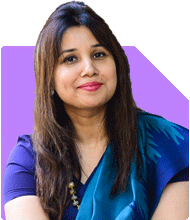Worried 53-Year-Old Retiree Seeks Financial Planning Advice on Equity Growth, Education, and Retirement
Ramalingam Kalirajan |7279 Answers |Ask -Follow
Mutual Funds, Financial Planning Expert - Answered on Dec 18, 2024
He has an MBA in finance from the University of Madras and is a certified financial planner.
He is the director and chief financial planner at Holistic Investment, a Chennai-based firm that offers financial planning and wealth management advice.... more
.jpg)
Question on Financial Planning: I am 53 years old and took retirement in 2023, a year ago. I have a corpus of approximately ?20 crores allocated as follows: ?6.5 crores in stocks ?5 crores in mutual funds ?5 crores in debt instruments ?2 crores in gold ?1.8 crores in a savings bank account** (to cover the next 12 years of household expenses). My monthly expenses are approximately ?1 lakh, and I receive: ?70,000 per month as house rent (?8.4 lakhs annually) ?10 lakhs annually as dividends from stocks. I have allocated ?5 crores in debt instruments to fund the higher education of my two sons (expenses will arise after 1 year and after 4 years). My goal is to grow my equity portfolio over the next 12 years since I do not depend on it for my current monthly expenses. Additionally: I have adequate health insurance. I own properties worth ?7.5 crores. I have no liabilities. My query: Is my financial planning on track, or do you see any areas for improvement or correction? I am open to suggestions for optimizing my investments, especially considering my goals of equity growth, funding my sons' education, and maintaining a comfortable retirement.
Assessment of Current Allocations
Equity Portfolio: Stocks (Rs. 6.5 Crores)
Your equity allocation reflects a growth-oriented approach.
A diversified stock portfolio is ideal for long-term growth.
Ensure the portfolio is well-balanced across sectors and market capitalisations.
Mutual Funds (Rs. 5 Crores)
Mutual funds provide diversification and professional management.
Review the fund categories to maintain a mix of large-cap, mid-cap, and flexi-cap funds.
Regular performance reviews are essential to optimise returns.
Debt Instruments (Rs. 5 Crores)
Allocating Rs. 5 crores for your sons’ education is prudent.
Ensure the debt investments are in low-risk instruments like bonds or fixed deposits.
Laddering maturity dates aligns well with your sons’ educational timelines.
Gold (Rs. 2 Crores)
Gold provides stability during market volatility.
Keep it as a hedge against inflation but avoid further allocation to this asset.
Savings Account (Rs. 1.8 Crores)
Holding Rs. 1.8 crores for 12 years of expenses is a cautious approach.
Move a part of this amount into liquid funds for better returns with liquidity.
Income and Monthly Expenses
Rental Income (Rs. 8.4 Lakhs Annually)
Rental income covers 70% of your monthly expenses.
Ensure the rental property is well-maintained to sustain consistent returns.
Dividends (Rs. 10 Lakhs Annually)
Dividend income provides an additional safety net.
Reinvest surplus dividends into mutual funds for compounded growth.
Monthly Expenses (Rs. 1 Lakh)
Your monthly expenses are comfortably managed.
Maintain a contingency fund of at least Rs. 20-25 lakhs for unexpected costs.
Recommendations for Optimising Equity Portfolio
Focus on Quality Stocks
Prioritise stocks of companies with strong fundamentals and consistent earnings.
Avoid overexposure to any single sector or company.
Systematic Equity Investments
Add to your equity portfolio gradually through Systematic Transfer Plans (STPs).
This reduces market timing risks.
Regular Portfolio Review
Review the equity portfolio annually.
Exit underperforming stocks and reallocate to high-growth opportunities.
Enhancing Mutual Fund Returns
Diversify Fund Selection
Include funds with different strategies to maximise returns.
A Certified Financial Planner can help identify high-performing funds.
Avoid Direct Mutual Funds
Regular funds offer advisory support for timely rebalancing.
This helps navigate market volatility effectively.
Utilise Tax-Efficient Withdrawals
Plan withdrawals systematically to reduce tax liability on capital gains.
Debt Instruments: Securing Educational Goals
Low-Risk Instruments for Predictable Returns
Allocate funds to secure options like government bonds, fixed deposits, or debt mutual funds.
Match the maturity timelines with educational milestones.
Avoid Premature Withdrawals
Breaking long-term debt investments can reduce returns.
Use other funds for emergencies to protect this allocation.
Optimising Gold Allocation
Retain as a Hedge
Gold should form no more than 10% of your portfolio.
Avoid further investments unless there are specific requirements.
Leverage Gold for Liquidity
Gold-backed loans can provide temporary liquidity if needed.
Savings Account Allocation
Move Funds to Liquid Investments
Savings account returns are suboptimal for such a large balance.
Move funds into liquid funds for higher returns and liquidity.
Emergency Fund Segregation
Retain Rs. 50 lakhs for immediate emergencies.
Invest the rest in short-term debt instruments or liquid funds.
Maintaining a Comfortable Retirement
Healthcare Planning
Ensure health insurance policies are adequate for critical illnesses.
Maintain a separate corpus for medical emergencies.
Contingency Fund Maintenance
Keep Rs. 20-25 lakhs readily accessible for unforeseen expenses.
Review this fund periodically to adjust for inflation.
Estate Planning
Draft a will to avoid disputes and ensure smooth wealth transfer.
Assign nominees for all investments and properties.
Taxation Considerations
Equity Taxation
Long-term capital gains (LTCG) above Rs. 1.25 lakhs are taxed at 12.5%.
Short-term capital gains (STCG) are taxed at 20%.
Debt Taxation
Debt instruments are taxed as per your income tax slab.
Choose tax-efficient options like tax-free bonds if needed.
Dividend Income
Dividends are taxed at your marginal income tax rate.
Reinvest dividends for tax-efficient growth.
Final Insights
Your financial plan is well-structured and aligns with your goals. However, optimising your equity and mutual fund allocations can enhance growth potential. Move idle funds from your savings account into liquid investments for better returns. Review and rebalance your portfolio periodically with the help of a Certified Financial Planner. Your current strategy provides a secure foundation for funding education, retirement, and wealth growth.
Best Regards,
K. Ramalingam, MBA, CFP,
Chief Financial Planner,
www.holisticinvestment.in
https://www.youtube.com/@HolisticInvestment
You may like to see similar questions and answers below
Ramalingam Kalirajan |7279 Answers |Ask -Follow
Mutual Funds, Financial Planning Expert - Answered on May 17, 2024
Ramalingam Kalirajan |7279 Answers |Ask -Follow
Mutual Funds, Financial Planning Expert - Answered on Jun 14, 2024
Dr Rajiv Kovil |8 Answers |Ask -Follow
Diabetologist - Answered on Dec 18, 2024
Radheshyam Zanwar |1104 Answers |Ask -Follow
MHT-CET, IIT-JEE, NEET-UG Expert - Answered on Dec 18, 2024
Prof Suvasish Mukhopadhyay |254 Answers |Ask -Follow
Career Counsellor - Answered on Dec 18, 2024
Prof Suvasish Mukhopadhyay |254 Answers |Ask -Follow
Career Counsellor - Answered on Dec 18, 2024
Prof Suvasish Mukhopadhyay |254 Answers |Ask -Follow
Career Counsellor - Answered on Dec 18, 2024
Patrick Dsouza |897 Answers |Ask -Follow
CAT, XAT, CMAT, CET Expert - Answered on Dec 18, 2024
Prof Suvasish Mukhopadhyay |254 Answers |Ask -Follow
Career Counsellor - Answered on Dec 18, 2024
Prof Suvasish Mukhopadhyay |254 Answers |Ask -Follow
Career Counsellor - Answered on Dec 18, 2024
Aruna Agarwal |79 Answers |Ask -Follow
Child and Parenting Counsellor - Answered on Dec 18, 2024






















